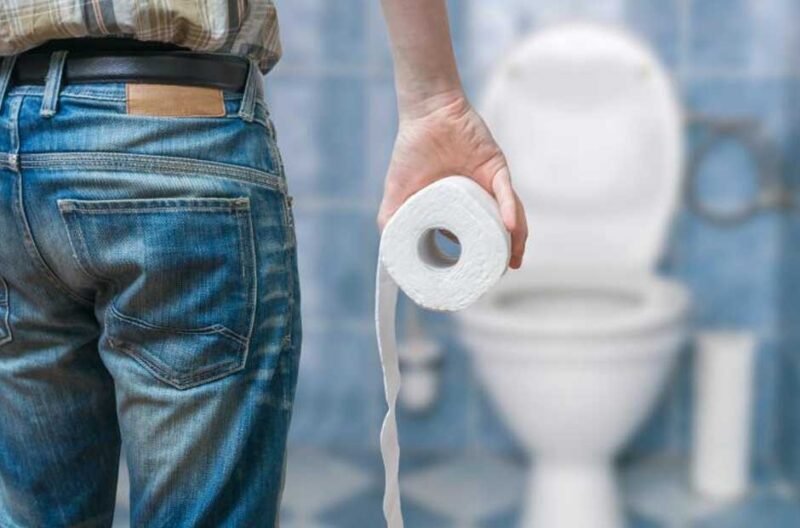
Hemorrhoids, or piles, are enlarged veins that are situated in the lower rectum or anus. These veins can become inflamed and painful due to increased pressure, leading to the development of hemorrhoids. They can be internal, inside the rectum, or external, appearing outside the anus.
Hemorrhoids are an infection that many people experience all around the world. Although they can be uncomfortable and sometimes painful, understanding their causes, symptoms, and treatment options can help manage and alleviate the discomfort they bring. This article provides a comprehensive overview of hemorrhoids, shedding light on their causes, common symptoms, and various treatment approaches available.
Causes of Hemorrhoids
Hemorrhoids can occur due to several reasons, such as:
- Straining during bowel movements: This can occur due to chronic constipation or excessive pushing.
- Pregnancy: Increased pressure on the veins during pregnancy can lead to hemorrhoid development.
- Obesity: Being overweight can put extra pressure on the rectal veins.
- Sitting or standing for prolonged periods: Inactivity can contribute to the development of hemorrhoids.
- Poor dietary habits: A diet low in fiber can lead to constipation, increasing the risk of hemorrhoids.
- Genetic predisposition: Some individuals may have an inherited tendency to develop hemorrhoids.
Types of Hemorrhoids
There are two main types of hemorrhoids:
- Internal Hemorrhoids: These are located inside the rectum and are generally not visible. Internal hemorrhoids can cause bleeding when passing stool.
- External Hemorrhoids: These develop around the anus and can be felt or seen as swollen lumps. External hemorrhoids may cause pain and discomfort.
Symptoms of Hemorrhoids
Common symptoms of hemorrhoids include:
- Rectal bleeding: This may occur during bowel movements and result in the presence of blood in the stool or on toilet paper.
- Itching or irritation: Hemorrhoids can cause persistent itching and discomfort in the anal region.
- Swelling and pain: External hemorrhoids may cause swelling, pain, and discomfort, making sitting or bowel movements painful.
- Feeling of a lump: A protruding lump may be felt around the anus due to external hemorrhoids.
Diagnosis of Hemorrhoids
To diagnose hemorrhoids, a healthcare provider may perform a physical examination of the anus and rectum. They may also use a proctoscope or sigmoidoscope to inspect the lower rectum and identify any abnormalities. In some cases, additional tests such as a colonoscopy may be recommended to rule out other potential causes of rectal bleeding and ensure an accurate diagnosis.
Prevention of Hemorrhoids
Taking preventive measures can help reduce the risk of developing hemorrhoids. Here are some tips:
- Maintain a high-fiber diet: Consuming foods rich in fiber, such as fruits, vegetables, and whole grains, can soften the stool and ease bowel movements.
- Stay hydrated: Drink an adequate amount of water each day to prevent constipation.
- Avoid straining: Avoid excessive straining during bowel movements by using proper posture and taking your time.
- Exercise regularly: Engage in regular physical activity to promote healthy bowel movements and prevent constipation.
- Practice good hygiene: Keep the anal area clean and dry to prevent irritation and infection.
Treatment of Hemorrhoids
Despite the fact most hemorrhoids may be treated at home, it is still vital to visit a doctor. There are various ways to treat this infection as you will learn in further text.
Non-Surgical Treatment Options
For mild to moderate cases of hemorrhoids, non-surgical treatment options can provide relief. These include:
- Topical creams and ointments: Over-the-counter creams containing hydrocortisone or witch hazel can help alleviate itching and discomfort.
- Sitz baths: Soaking the affected area in warm water for 10 to 15 minutes several times a day can reduce swelling and relieve symptoms.
- Witch hazel pads: Applying pre-soaked pads to the affected area can provide temporary relief.
Surgical Treatment Options
Severe or persistent hemorrhoids may require surgical intervention. Some surgical treatment options include:
- Hemorrhoidectomy: This procedure involves the surgical removal of hemorrhoids.
- Rubber band ligation: The hemorrhoid’s blood supply is cut off by wrapping a rubber band around the hemorrhoid’s base, forcing it to contract and fall out.
- Sclerotherapy: The hemorrhoid is given a chemical injection that causes it to contract and eventually go away.
Alternative Treatment Approaches
In addition to traditional medical treatments, some alternative approaches may help manage hemorrhoids. These include:
- Herbal remedies: Certain herbs, such as horse chestnut and butcher’s broom, have been used to alleviate hemorrhoid symptoms.
- Aloe vera gel: Applying aloe vera gel to the affected area can provide soothing relief.
- Essential oils: Some essential oils, like tea tree oil and lavender oil, have anti-inflammatory properties that can help reduce hemorrhoid discomfort.
Lifestyle Changes to Manage Hemorrhoids
Incorporating certain lifestyle changes can help manage and prevent hemorrhoids:
- Maintain a healthy weight: Losing excess weight can reduce pressure on the rectal veins.
- Exercise regularly: Engage in regular physical activity to promote healthy bowel movements and improve circulation.
- Avoid prolonged sitting or standing: Take breaks and avoid sitting or standing for extended periods to reduce pressure on the anal area.
- Avoid straining during bowel movements: Use proper posture and take your time when on the toilet.
When to Seek Medical Attention
While most cases of hemorrhoids can be managed at home, it is important to seek medical attention if:
- Rectal bleeding persists: If you notice persistent or excessive rectal bleeding, it is important to consult a healthcare professional.
- Pain becomes severe: If the pain associated with hemorrhoids becomes severe and does not improve with home remedies, medical evaluation is necessary.
- Symptoms worsen or persist: If symptoms persist despite conservative measures, medical advice should be sought.
Addressing Hemorrhoids During Pregnancy
Pregnant women are more susceptible to developing hemorrhoids due to increased pressure on the veins. To manage hemorrhoids during pregnancy:
- Increase fiber intake: Consume a high-fiber diet and drink plenty of water to prevent constipation.
- Practice good hygiene: Keep the anal area clean and dry to avoid irritation.
- Use topical treatments: Consult with a healthcare professional about safe topical treatments suitable for use during pregnancy.
- Engage in gentle exercise: Incorporate gentle exercises like walking or prenatal yoga to promote healthy bowel movements.
- Practice good toilet habits: Avoid straining during bowel movements and use soft, unscented toilet paper to prevent further irritation.
Hemorrhoids are a common condition that can cause discomfort and inconvenience. Understanding the causes, symptoms, and treatment options is essential for effective management. By adopting healthy lifestyle habits, seeking appropriate medical guidance when needed, and dispelling myths, individuals can alleviate the symptoms of hemorrhoids and improve their overall quality of life.
Conclusion
One frequently asked question is, can hemorrhoids last for years? The answer is yes, they can become chronic and last for years if not properly managed or treated. Chronic hemorrhoids often result from an ongoing issue such as persistent constipation, obesity, or a sedentary lifestyle. It’s important to seek medical advice for persistent symptoms to explore treatment options and lifestyle changes that can help manage chronic hemorrhoids and reduce their impact on your quality of life.

